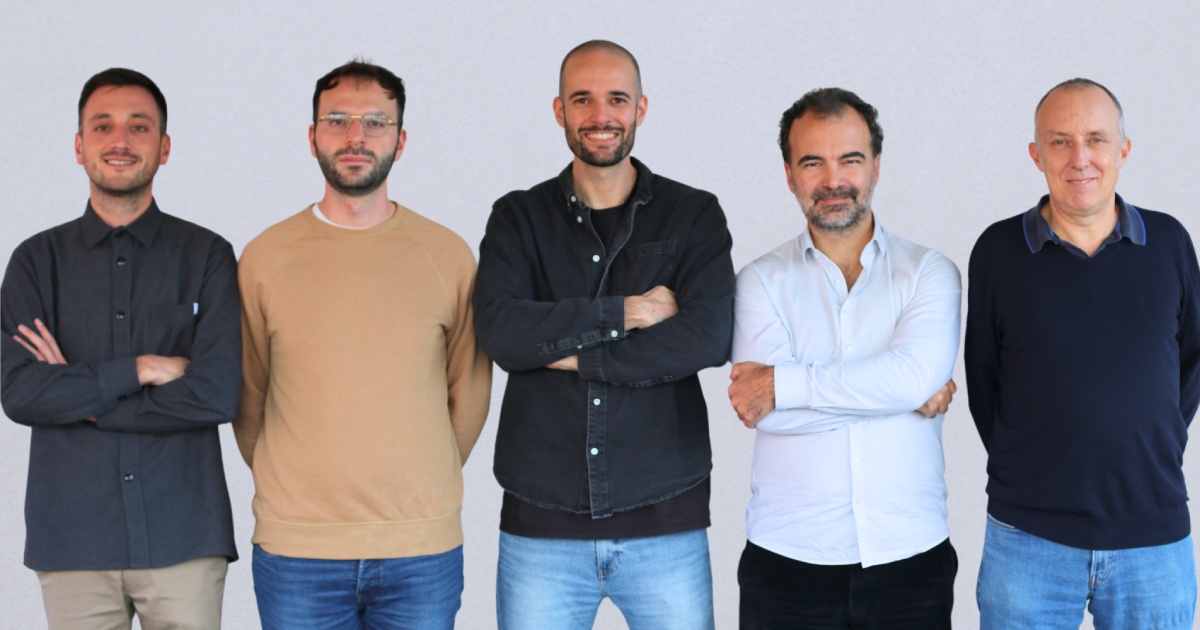
RoboIT, the Italian National Technology Transfer Centre for Robotics set up on the initiative of CDP Venture Capital's TechTransfer Fund together with Pariter Partners, led an investment deal in the innovative start-up Fluid Wire Robotics worth over €800,000, with the participation of Scientifica Venture Capital and Pariter Robotics.
In addition to being one of the projects selected in 2022 by RoboIT through its Tech-Incubation programme, which financed and supported the team in the pre-seed phase, Fluid Wire Robotics is also one of the promising winners of Scientifica Venture Capital's Super Sapiens Day Factory start-up competition.
Since the beginning of July 2024, the young company has been incubated at I3P, the Incubator of Politecnico di Torino, and has joined the ESA BIC Turin incubation program, managed by I3P in cooperation with the Italian Space Agency (ASI), the European Space Agency (ESA), Politecnico di Torino and LINKS Foundation.
The project was created as an accredited spin-off of Scuola Superiore Sant'Anna in Pisa, Italy, and has its roots at the Institute of Mechanical Intelligence of this renowned university. It was developed under the supervision of professor Marco Fontana, Co-Founder of the start-up, who has many years of experience in robotics and applied mechanics. It is therefore a virtuous example of how collaboration between entrepreneurial and academic worlds is essential for successful technology transfer.
The goal of Fluid Wire Robotics is to redefine how robots are designed to fit into any environment without compromising performance. The robotics market, in terms of turnover, was estimated to be around €42.2 billion in 2022 and is expected to reach a value of around €95.5 billion by 2028, with a CAGR (compound annual growth rate) % (2022-2025) of 38.8% and a CAGR % (2026-2028) of 5.8%.
Currently, adapting conventional robots to extreme environmental contexts involves significant design complexity and very high additional costs. Moreover, it requires ad-hoc technical solutions for each specific situation, thus limiting the robots' versatility of use. The Fluid Wire Robotics team, on the other hand, designed a fully electric and modular manipulator arm capable of operating in extreme conditions, e.g. under radiation, in a vacuum, at high temperatures, underwater or in areas considered too dangerous for human operators.
The peculiarity of this arm lies in its ability to guarantee intrinsic high reliability by eliminating all electrical and electronic components such as motors or sensors - traditionally located inside the arm structure - by placing them instead in a removable external box. Power is then transferred from the external box to the robot joints via ‘Fluid Wires’, which are specific fluid transmission systems based on proprietary technology. This not only makes the arm extremely light, fast and capable of exerting programmable forces with great accuracy, but also ensures that it is ‘an empty structure’, i.e. free of components that could trigger explosions, be damaged by radiation or be subject to overheating problems.
Fluid Wire Robotics' mission is to break through the boundaries that limit the fields of use of robotics by setting the new standard for designing robots for extreme environments. The start-up will focus firstly on the development and commercialisation of robotic arms for the nuclear and space sectors, and later on underwater and explosive environments.
"The technology developed by Fluid Wire Robotics significantly pushes robotics into extreme environments, becoming an enabler of new solutions within complex supply chains such as nuclear energy," commented Claudia Pingue, Head of CDP Venture Capital's Technology Transfer fund. "These are the type of initiatives that are at the heart of the RoboIT Pole's activities, aimed at bringing out projects with a long-term impact, developed by the excellence of Italian research."
"Our decision to invest in Fluid Wire Robotics is based on the conviction that this type of innovative technology is fundamental to the evolution of cutting-edge manufacturing," said Riccardo D'Alessandri, Managing Partner of Scientifica Venture Capital. "We are convinced that this new approach to robotic design will pave the way for unprecedented exploration and intervention in dangerous or hard-to-reach places, thereby limiting the very high-risk activities currently performed by humans."
"We are delighted to confirm our support and investment in the Fluid Wire Robotics project, a team and a company that stand out for their ability to pursue a disruptive technological vision, which could revolutionise robotic design in various fields, from nuclear to aerospace... and beyond," said Valentina Franchini, Managing Director of Pariter Partners.
"We are thrilled that RoboIT, Pariter Partners and Scientifica Venture Capital have believed in the vision of Fluid Wire Robotics and have chosen to join us in the challenge of bringing a new generation of robots to life," said Marco Bolignari, CEO and Co-Founder of Fluid Wire Robotics. "This investment will propel us towards an accelerated technological development that will soon lead our robots to operate in the most extreme environments on our planet... and not only! Indeed, we position ourselves as an enabling technology platform, capable of providing revolutionary, sustainable and reliable robotic solutions to support the major technological challenges facing the nuclear energy, submarine exploration and space robotics sectors. We look forward to bringing to life what we have been planning and dreaming about for so long!"
The site uses technical cookies, which are essential for the proper use of the site, and third-party analytical cookies, in order to improve site performance. If you accept or continue to browse the site, you consent to the use of cookies.


